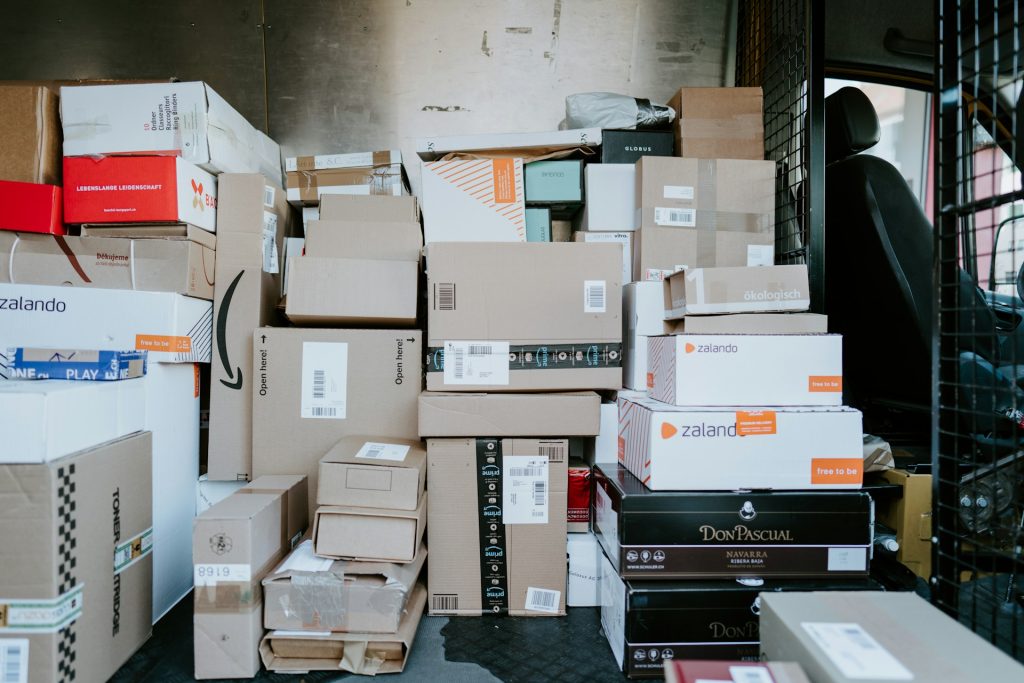U.S. Ends Duty-Free Status for Low-Value International Packages

Major Policy Shift Under Trump Administration
The Trump administration has officially ended the long-standing duty-free policy for international packages valued under $800. Effective Friday, the U.S. government now imposes tariffs on all foreign shipments, regardless of their value, in a sweeping change aimed at tightening trade regulations and cracking down on drug smuggling.
This move builds upon an earlier measure that eliminated the exemption specifically for packages from China. By the end of July, President Donald Trump extended the policy to cover all countries. As a result, postal services in multiple countries—including Switzerland, France, India, and Australia—announced they would no longer accept most parcels destined for the United States. Global courier giant DHL also stated it would drastically reduce its U.S.-bound shipping operations.
Crackdown on Drug Smuggling and Illegal Imports
The administration cited national security concerns and the fight against drug trafficking as the key reasons behind this drastic policy shift. According to the White House, duty-free shipments under the so-called “de minimis” threshold were being widely exploited to smuggle synthetic opioids and other illicit substances into the U.S.
A senior White House official referred to the previous exemption as a “catastrophic loophole,” used not only to avoid paying tariffs but also to distribute dangerous goods. U.S. Customs reported that in the past year, 98% of seized drugs, 97% of counterfeit items, and 70% of hazardous products were discovered in such duty-free parcels.
The Role of E-Commerce and Chinese Platforms
The rise of global e-commerce platforms such as Temu and Shein contributed significantly to the spike in duty-free shipments. In 2015, the U.S. received around 134 million such packages. By last year, that number had surged to over 1.36 billion.
In May, when the U.S. first revoked China’s de minimis privileges, the number of daily small-value shipments from China plummeted from 4 million to just 1 million, according to government data. Since then, nearly $492 million in tariffs have been collected.
However, U.S. officials say Chinese sellers quickly found ways to reroute shipments through third countries to bypass the restriction, prompting the administration to extend the rule globally.
New Rules and Temporary Fees
Under the new regulation, imported goods must now be taxed according to the applicable U.S. tariff for the product’s country of origin. Alternatively, during a six-month transition period, shippers may pay a flat fee ranging between $80 and $200 per package. Only bona fide gifts valued under $100 will remain exempt from this rule.
More than 90% of these low-value international packages are handled by express couriers such as FedEx and UPS. The administration expects minimal disruption from these carriers. However, traditional national postal services, which have begun restricting U.S. shipments due to the additional customs burden, received criticism from Washington. A senior official urged these providers to enhance data sharing with U.S. authorities rather than halting service altogether, warning that express carriers could easily absorb the market share they leave behind.
Growing Tensions in Global Trade
This development adds to mounting trade tensions, especially with countries like India. The U.S. recently announced new import duties on Indian products, citing concerns such as India’s continued importation of Russian oil.
The White House remains firm on its stance: the new tariffs are essential not just to protect American industries but also to secure the nation’s borders from illicit substances and unsafe products. As international shipping adjusts to the new reality, consumers and businesses alike will face new challenges in navigating cross-border trade with the United States.
 Gold Retraces Amid Index Rebalancing as Market Awaits Payroll Data
Gold Retraces Amid Index Rebalancing as Market Awaits Payroll Data  Solar Sector’s Paradox: Global Resilience Meets Spain’s Oversupply Crisis
Solar Sector’s Paradox: Global Resilience Meets Spain’s Oversupply Crisis  Xetra-Gold Shows Resilience as Spot Prices Climb
Xetra-Gold Shows Resilience as Spot Prices Climb  Coffee Market Sees Shifting Dynamics: Reborn Stock Update and German Retail Price Cuts
Coffee Market Sees Shifting Dynamics: Reborn Stock Update and German Retail Price Cuts  Iberdrola Investments Hit Record 9 Billion Euros, Driven by UK and US Growth, Boosting Profit by 17%
Iberdrola Investments Hit Record 9 Billion Euros, Driven by UK and US Growth, Boosting Profit by 17%  NVIDIA Makes Landmark $5 Billion Investment in Rival Intel to Co-Develop Chips
NVIDIA Makes Landmark $5 Billion Investment in Rival Intel to Co-Develop Chips  Apple’s 20th Anniversary iPhone May Finally Break the Mold of Iterative Updates
Apple’s 20th Anniversary iPhone May Finally Break the Mold of Iterative Updates  Tennis Roundup: Swiatek Stands Out in Cancun While Raducanu Returns to Action
Tennis Roundup: Swiatek Stands Out in Cancun While Raducanu Returns to Action